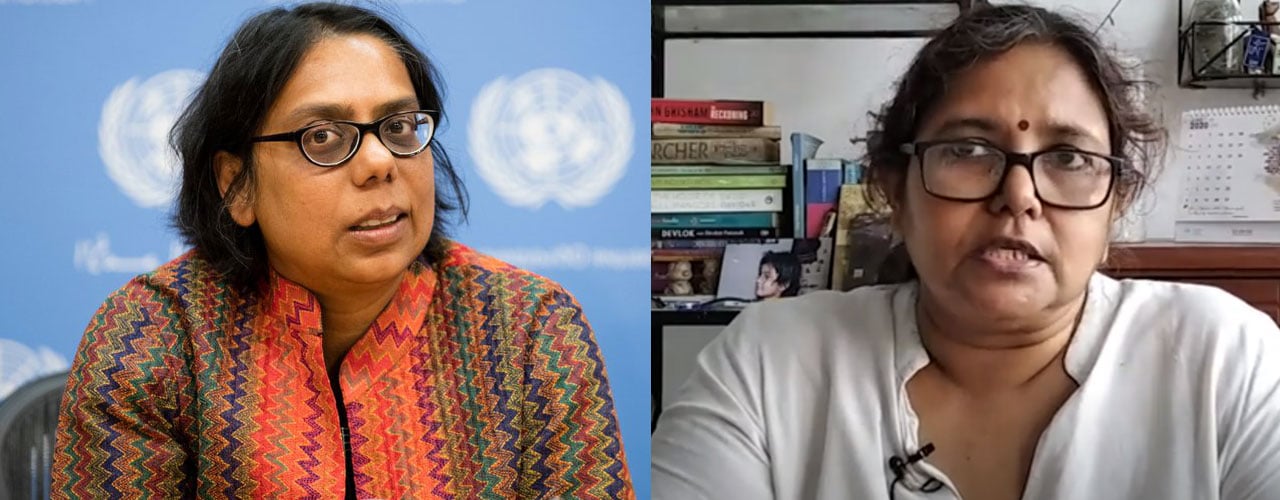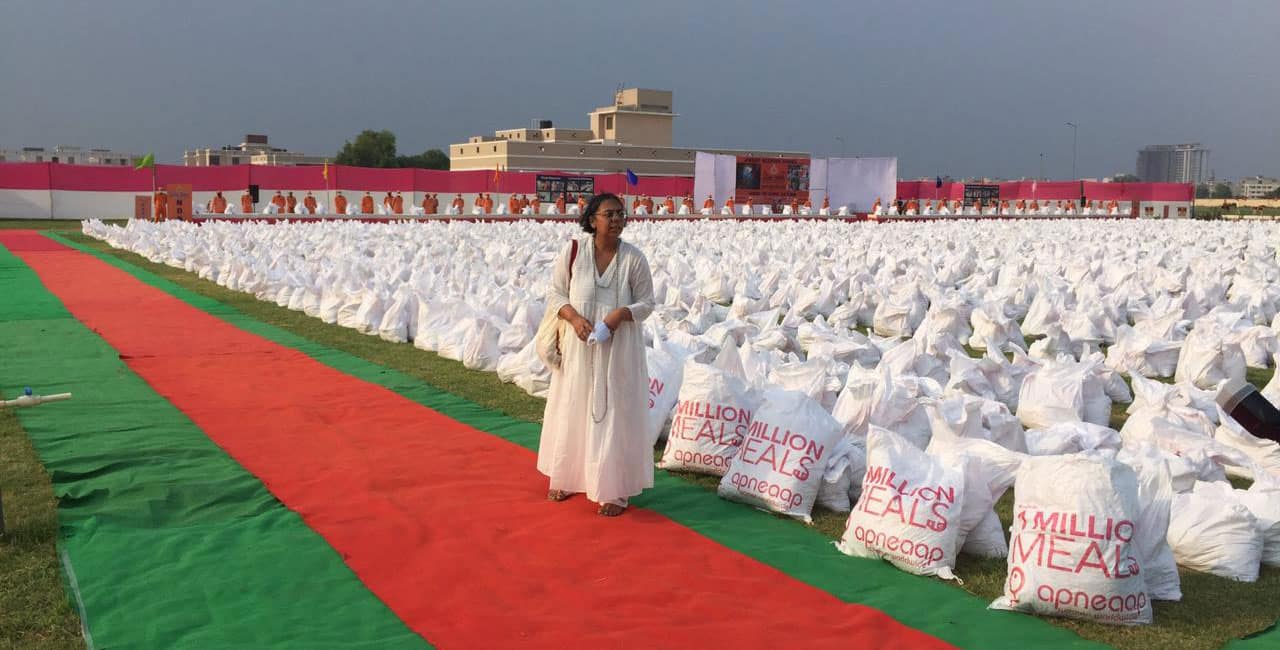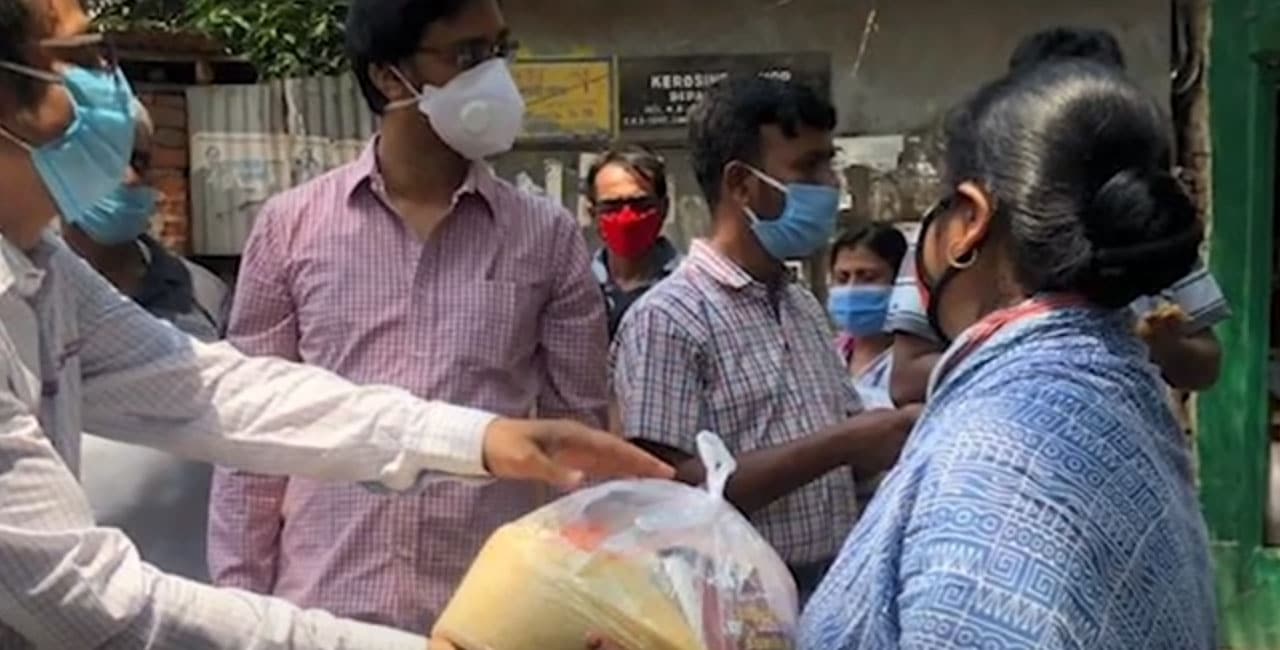According to a study, Modelling the Effect of Continued Closure of Red-Light Areas on COVID-19 Transmission in India by Yale School of Medicine and Harvard Medical School in May 2020, Indians were at a much lower risk of getting Covid-19 if red light areas are kept closed after the lockdown until an effective treatment or vaccine for COVID-19 is developed.
There are over 637,500 sex workers in India, and over 500,000 customers visit the red-light areas daily as per the National Aids Control Organization (NACO).
If the red-light areas started operating, the disease would spread extremely fast and infect a very high percentage of sex workers and customers. While the study was meant to prevent the pandemic from spreading, it did not account for the deep economic crisis that the sex workers had been plunged into.

1 Million Meals
Just about three days after a nationwide lockdown was announced in March, Ruchira Gupta, Founder of Apne Aap Women Worldwide, received a distress call from a 12-year-old living in a red-light area in Delhi who described the helpless state of her community since the lockdown.
As per the report, the girl was the daughter of a sex worker who had been sent home from boarding school due to the lockdown. She was one of the many children sponsored by Apne Aap, an organization that helps victims of sex trafficking and children. Just then Ruchira was put to action. The activist immediately asked a friend to arrange for 500 quick meals to be distributed in the area. Within no time she began to get messages from Bihar, Kolkata, and other places, from women and children who were starving.

Ruchira’s immediate focus point was food, and in just a matter of days, she launched 1MillionMeals, which now provides millions of meals to these marginalized families over the past three months.
Soon the move developed its way to provide dry rations – a bag of rice, onions, dal, potatoes, spices, soap, cooking oil, masks, etc.
Though the government was distributing food, it was not reaching these women and their families. Would the government create a kind of humane pathway for them, prevent suicides, and their children being orphaned, questioned Ruchira.
Fortunately, Ruchira and her team have received tremendous support from unexpected quarters.
About 50k sanitary pads have been donated by anonymous sources. White rice giant India Gate also provided truckloads of rice and another company in Indore offered spices, many offered cash too, shared Ruchira. Her move largely spread through word of mouth and with celebrities like Chef Vikas Khanna and actor Abhay Deol talking about it on social media.
‘Ektu Deen’ (Give a little)
Likewise, in the far east of India, Dipali Bhattacharya, a retired principal of the Government College of Art and Craft, her friend Aditi Roy Ghatak, a veteran journalist and activist, and other friends joined the team of Bikash Ranjan Bhattacharya, former Kolkata mayor and member of the Rajya Rabha to start an initiative called ‘Ektu Deen’ (Give A Little).
What initially started as a helpline for migrant workers stranded in other states and enable their return home by the former mayor and a team of lawyers eventually reached out to provide the sex workers living in Sonagachi, Asia’s biggest red-light area located in Kolkata.
Over the past two months, they have distributed food and essential items like sanitary napkins, not only among residents of Sonagachi and south Kolkata’s smaller red light pocket in Kalighat, but also provided slum dwellers, migrants returning to their home state of West Bengal, and villagers in the South and North 24 Parganas and Hooghly districts.
We salute their spirit and compassion.


